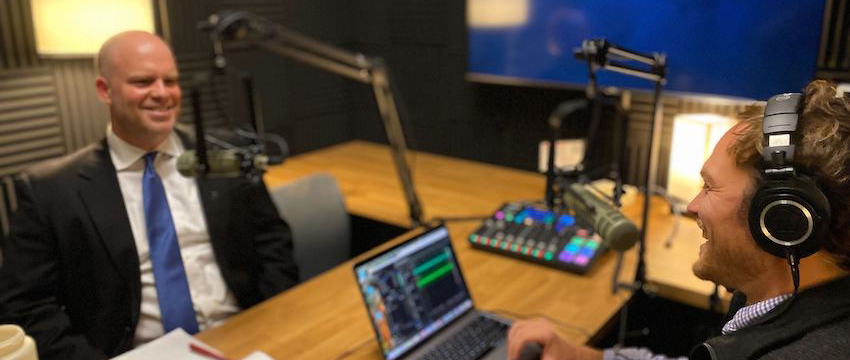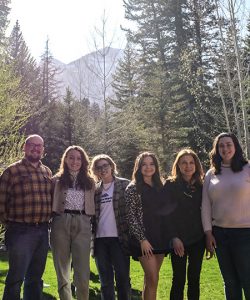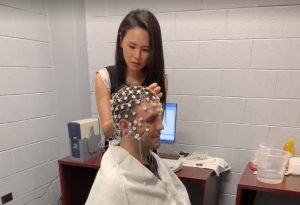New podcast spotlights Grady College’s research and expertise

New podcast spotlights Grady College’s research and expertise
As podcasts continue to grow as a popular form of media, it is only fitting that the University of Georgia’s Grady College of Journalism and Mass Communication would turn to audio storytelling to help highlight its research and expertise.
The new Grady Research Radio podcast, which debuted on Sept. 7, 2022, and is recorded in the podcast studio Studio Not Found, features concise conversations with faculty members at Grady College and shines a light on their research and proficiencies, as well as the College’s labs.

The podcast’s debut episode covered the news of Grady being named one of the nation’s inaugural solutions journalism hubs by the Solutions Journalism Network. It features interviews with Grady faculty and solutions journalism experts Dr. Amanda Bright, Dr. Kyser Lough and Ralitsa Vassileva, who explained what Grady College is currently doing in research, instruction and outreach to advance solutions journalism, what the new designation means, and how students, educators and professionals in the region can get involved.
“There’s so much happening on campus that we never hear about,” said Vassileva. “A podcast that spreads the word across silos could advance solutions journalism beyond what we can achieve on our own. It could spark new ideas for collaboration.”
The solutions journalism episode was soon followed by one on Grady’s Brain, Body and Media (BBAM) Lab, a lab directed by assistant professor of advertising Dr. Glenna Read used to research psychophysiological reactions to different forms of media and messages. In the lab, researchers can attach sensors to subjects to track how they respond to audio and visual stimuli. Many of the studies conducted in the lab monitor participants by using electrodes that measure activity in the heart, movement of facial muscles on the forehead or around the eyes, and electrodermal activity, or sweat glands, on the hands. The lab also uses electroencephalography (EEG) that measures brain wave activity.

Similarly, the podcast’s third episode sheds light on the new Qualitative Research Lab at Grady College, where graduate and undergraduate students can pursue research focusing on qualitative, non-numerical data. It features a conversation with Dr. Karin Assmann, an assistant professor in the Journalism Department at Grady College and the director of the Qualitative Research Lab. In the episode, Dr. Assmann explains what goes on in her lab, speaks about recent studies conducted in the lab, and offers insight into how those interested can get involved.
The fourth and fifth episodes zero in on the 2022 general elections in the state of Georgia. The fourth episode features a conversation with Dr. David Clementson, an assistant professor in Public Relations at Grady College and a political communication researcher, about the state of political debates. The fifth includes a discussion with Joseph Watson, Jr., the Carolyn Caudell Tieger Professor of Public Affairs Communications in the Department of Advertising and Public Relations at Grady College, about political advertisements.
“Grady College has many tremendous researchers who work really hard to run studies and collect data answering tough questions and addressing huge phenomena that affect our lives,” said Clementson. “The Grady Research Radio podcast is a great way for professors’ studies to translate to the general public in a fun, conversational and approachable way. I love listening to the podcast and learning more about my own colleagues who are working hard on impactful research.”

The sixth and most recent episode focuses on the field of game studies and features an interview with Dr. Shira Chess, an associate professor in the Department of Entertainment and Media Studies (EMST), a game studies researcher, and the author of books including “Play Like a Feminist” and “Ready Player Two: Women Gamers and Designed Identity.” Dr. Chess discusses her research, why video games may not get the attention they deserve, and what the future may hold for the field.
Grady Research Radio is hosted and produced by Jackson Schroeder, the public relations specialist at Grady College. It is generally released biweekly, and a complete list of episodes can be found here.